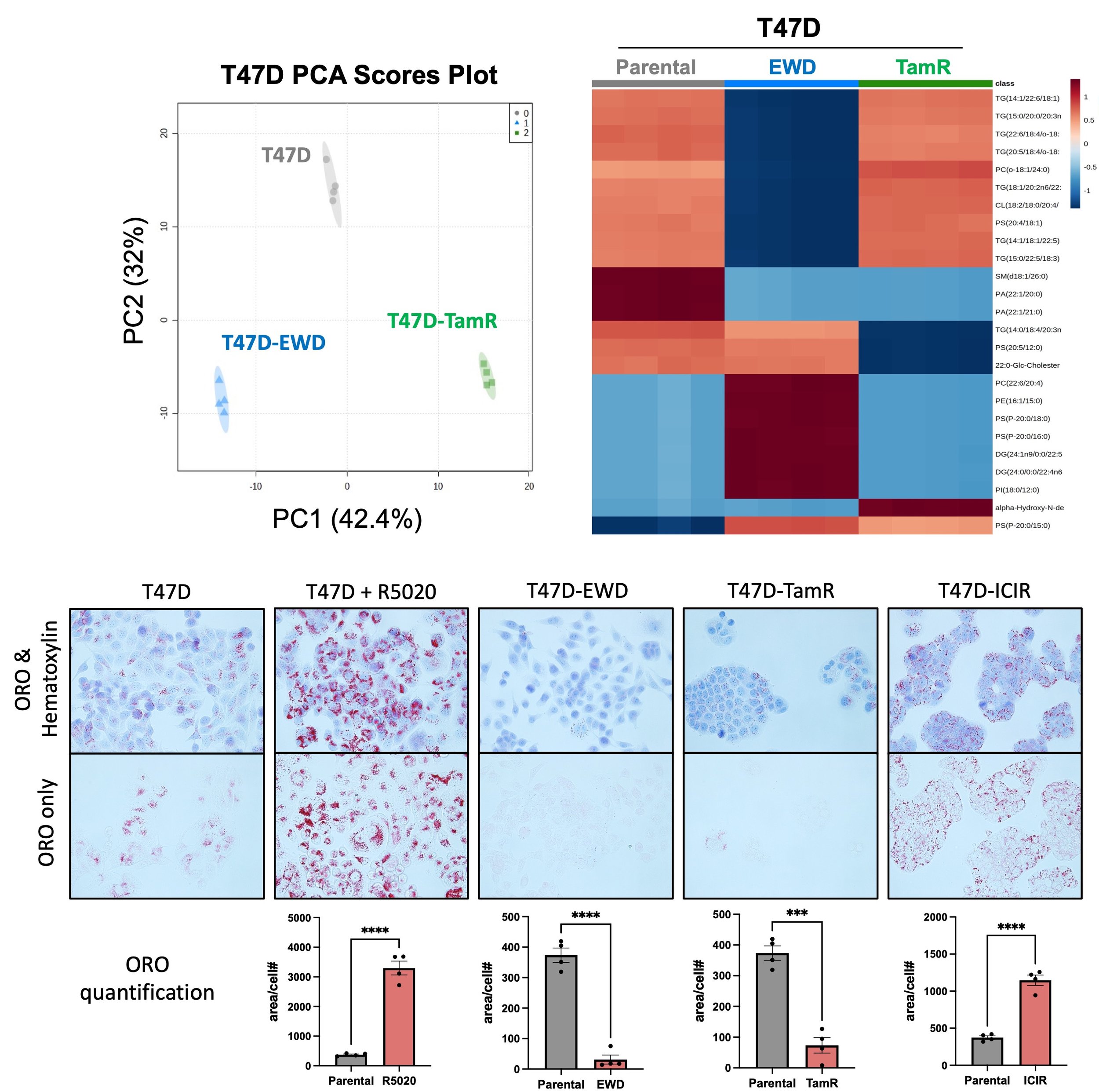Top: Untargeted lipidomic analysis showing global lipidome changes between parental and endocrine resistant breast cancer cell lines. Bottom: Oil red O staining showing changes in neutral lipid storage with different forms of endocrine resistance.
Endocrine resistant breast cells exhibit distinct changes to global lipidome
Lipid (or fatty acid) metabolism is essential for all proliferating cancer cells and lipid reprogramming has been implicated in endocrine resistance. Using several parental and endocrine resistant ER+PR+ breast cancer cell lines, we identified distinct changes to the global cellular lipidome using untargeted mass spectrometry analysis. Neutral lipid staining confirmed the changes in neutral lipid species and lipid storage. We found these changes are dependent on the type of endocrine resistance (i.e. tamoxifen vs fulvestrant), highlighting that targeting lipid metabolism is a reasonable strategy to deter endocrine resistance. We are also measuring the impact of estrogens and progestins on breast cancer cell metabolism.
